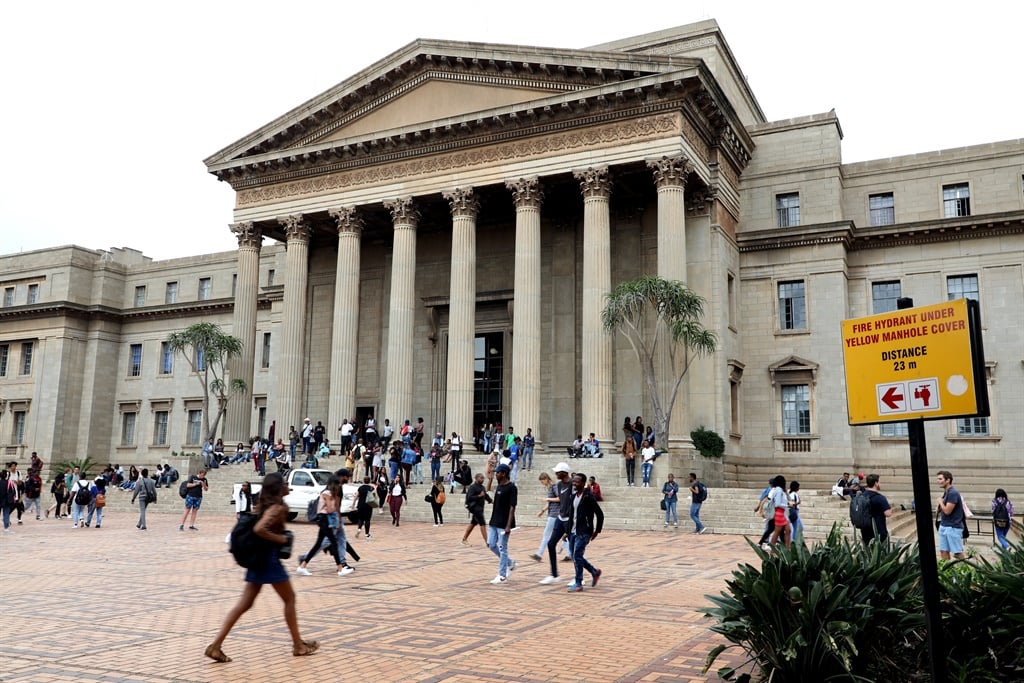
Decision to reinstate Wits lecturer – previously accused of sexually harassing female students and staff – ‘shows blindness to sexism, privilege’.
In a twist of events, Wits University has reinstated a professor who was previously accused of sexual harassment.
But this has not gone down well with some at the university who labelled the decision as “controversial”.
Professor Mulala Danny Simatele was reinstated by the university after a successful review of a panel’s sexual harassment finding against him.
Simatele was found guilty by the university’s Gender Equity Office (GEO) panel, chaired by attorney Wandisa Phama and two academics, on March 25 last year.
City Press understands that Wits informed staff about Simatele’s return in December, saying he would be transferred from the geography, archaeology and environmental studies (GAES) to the global change institute from the beginning of this month until the end of January 2021 and that he would continue to teach a selection of courses in GAES.
Simatele did not respond to an email sent to him and Wits did not assist when asked to facilitate a response.
According to the confidential first ruling, drafted and signed by Phama and others, and seen by City Press, six women at GAES, split between staff and students, had filed complaints against Simatele.
But one of them allegedly withdrew her complaint at the stage of the hearing.
Phama’s panel, detailing in the first ruling how the panel had reached their verdict, said: “Having considered the totality of the evidence, the relevant law and university policies, we uphold each of the five complaints of sexual harassment and find the respondent [Simatele] guilty of misconduct in relation to each complaint.”
In relation to the appropriate sanction, the ruling said clause nine of the GEO procedure document provided that the parties were entitled to make representations to the panel on the question of mitigation, leniency or aggravation.
The panel under the new chair, the ruling said, would hear such arguments.
Some of the allegations cited in its findings were that Simatele had:
- Asked a complainant deeply personal questions, including about matters of feminine hygiene and that he made unwanted sexual remarks;
- Made a sexist comment to another complainant in class when he equated the length of an academic literature review to awoman’s skirt that “should be short enough to attract attention, but long enough to cover the subject matter”; and
- Breached reasonable professional boundaries when a complainant informed him that she was undergoing some personal difficulties and he tried to comfort her and commented about her beauty.
Last week Wits’ spokesperson, Buhle Zuma, would not disclose what sanction was later imposed by Phama’s panel.
However, sources told City Press that there was a second hearing, the result of which was the alleged dismissal of Simatele. Zuma would not confirm or deny this, saying only that the finding made by Phama’s panel was overturned.
“The university has provided its statement on the matter and will not comment further at this stage,” Zuma said on Friday afternoon.
Earlier, Zuma said that a disciplinary hearing was held which determined an outcome.
“In line with the university’s policies and processes, which allow for persons to appeal or review the outcome of a disciplinary hearing, there was a subsequent review of that outcome [the finding of Phama’s panel] by an appeal or review committee.
“In this case, and in line with the university’s policies, Simatele applied to have the recommendation of the first committee [Phama’s panel] reviewed and an appeal or review committee was convened to hear this review application,” Zuma said.
The review panel, she said, was constituted in terms of GEO procedure and comprised three law professors.
She said this led to a need for the case to be heard de novo [that is to be heard anew].
“Prior to making any decisions, the GEO consulted the complainants about whether they wanted to proceed with a de novo hearing. The complainants elected not to do so. In addition, the vice-chancellor and principal, [Adam Habib], through the GEO, invited the complainants to meet him to allay any concerns they might have had in proceeding with a hearing de novo, but the complainants were firm in their view,” Zuma said.
She said a de novo hearing could not be held without the participation of the complainants.
“Since the recommendation of the original panel was overturned, there was no legal impediment preventing Simatele from returning to the university. Keeping in mind the fact that some witnesses [not complainants] might be in the same vicinity as Simatele, it was agreed that he would move to another entity in the university,” Zuma said.
A list of complainants and witnesses contacted by City Press last week either declined to comment or indicated that they were not involved in the case.
But, sources said there were concerns about Simatele’s return.
One said: “This is controversial. I’m told that he was reinstated because he raised irregularities in the first hearing as the basis of challenging the finding on the grounds of procedural unfairness. But how does that make him not guilty?”
A second source said there were questions about whether evidence presented before Phama’s panel was considered by the review committee. “Now, he is back. What about that evidence?”
Zuma said: “We reiterate that all decisions made by the university in respect of this matter were taken within the framework of the policy and the law, and after consultation with the complainants.”
Zuma said, in general, disciplinary matters were treated as confidential.
“We accordingly advise the City Press against its approach on this matter because publication by the City Press in this regard violates the rights of both the complainants and that of prof Simatele,” Zuma said.
The Phama report said testimony by witnesses revealed a much deeper issue about the culture at GAES which was conducive to sexual harassment and which enabled such a culture to flourish with impunity.
“Their testimonies depicted a school with a patriarchal culture, where invisible power is concentrated in the hands of men who are senior in academic ranks and constitute an ‘Old Boys Club’ or network,” the ruling reads, adding that “the handful of women who had managed to rise in academic rank appeared to adopt or at least tolerate the status quo. The toxicity of that power lies in its lack of appreciation by those who have it ... and their blindness to sexism and sexist behaviour confers privilege.”
It further said two witnesses who were called by Simatele exemplified what three complainants meant about the senior men in the school being blind to behaviour or conduct that might cause harm towards women in the school.
“For example, the complainants described the school as a ‘Boys’ Club’. As a response to that description, both [Simatele’s witnesses], when asked to provide some insight on this, were at pains to explain the lack of existence of such a club. They spoke as though the ‘Boys Club’ was a tangible association instead of an informal system in which invisible power is retained by senior male professors and other men in the school, resulting in the alienation of many female members of staff and students,” the panel found.
 | ||||||||||||||||||||||||||
Msindisi FenguJournalist | City Press | ||||||||||||||||||||||||||
| ||||||||||||||||||||||||||
| Rise above the clutter | Choose your news | City Press in your inbox | ||||||||||||||||||||||||||
| City Press is an agenda-setting South African news brand that publishes across platforms. Its flagship print edition is distributed on a Sunday. |




 Publications
Publications
 Partners
Partners








